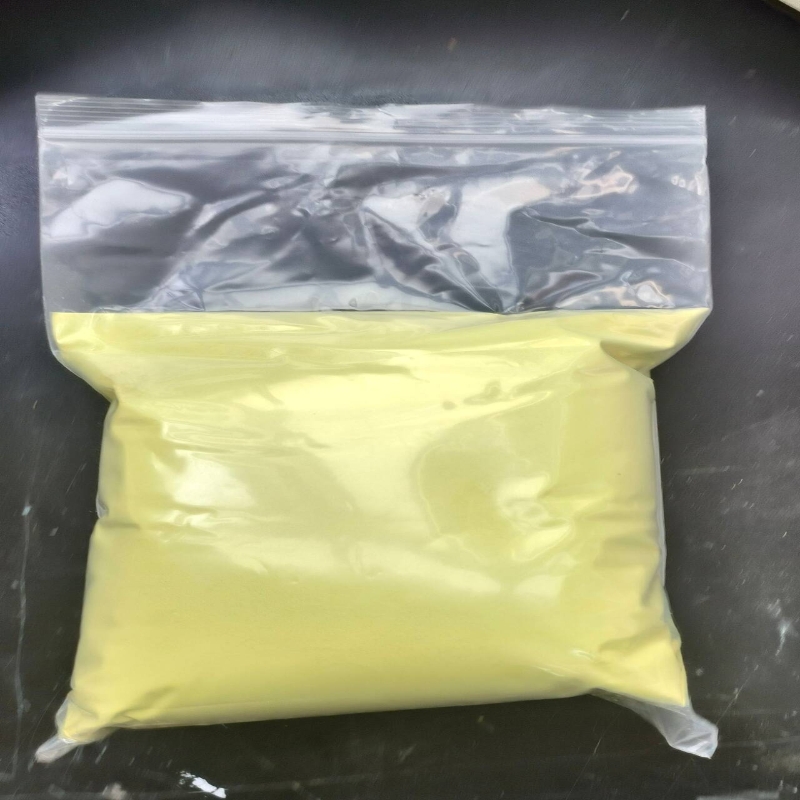-
Categories
-
Pharmaceutical Intermediates
-
Active Pharmaceutical Ingredients
-
Food Additives
- Industrial Coatings
- Agrochemicals
- Dyes and Pigments
- Surfactant
- Flavors and Fragrances
- Chemical Reagents
- Catalyst and Auxiliary
- Natural Products
- Inorganic Chemistry
-
Organic Chemistry
-
Biochemical Engineering
- Analytical Chemistry
- Cosmetic Ingredient
-
Pharmaceutical Intermediates
Promotion
ECHEMI Mall
Wholesale
Weekly Price
Exhibition
News
-
Trade Service
About 3% to 4% of patients with non-small cell lung cancer (NSCLC) carry a MET exon 14 jump mutation, while MET amplification occurs in 1%-6% of NSCLC patients.
, the New England Journal of Medicine (NEJM) published two positive clinical results for MET-subject selective inhibitors.
in two Phase 2 trials, nearly half of patients with advanced NSCLC with specific MET path path abnormalities received lasting relief through tepotinib or capmatinib therapy.
phase 2 study on the open label of Tepotinib's treatment of met exon 14 jump mutation late NSCLC assessed the efficacy and safety of tepotinib.
a total of 152 patients diagnosed with the MET exon 14 jump mutation received tepotinib treatment, of which 99 patients received follow-up for at least 9 months.
screenshot Source: New England Journal of Medicine The middle age of the 99 patients was 74.
about 45 percent of patients had not been treated before, one-third had received one treatment, and about one-third had received two or more treatment options.
of the 99 assessable patients, the independent assessment team determined a total mitigation rate of 46% and a medium remission time of 11.1 months.
the patient's MET exon 14 jump mutation is confirmed by liquid biopsy or tissue biopsy, the remission rate is similar.
In 66 patients who received a liquid biopsy, the total remission rate was 48%, in 50 patients who received an tissue biopsy, the total remission rate was 50%, and 27 patients showed remission in both liquid biopsy and tissue biopsy results.
rate, assessed by the researchers, was even higher, at 56 percent, similar regardless of the treatment the patient had previously received.
In addition, of the 51 patients who had a liquid biopsy at both baseline and during treatment, 34 (67%) had a molecular response (assessed in circulating free DNA (cfDNA) and 24 (71%) of the 34 cases were determined by an independent assessment team to have an imaging response.
safety, the researchers determined that 28 percent of patients had treatment-related level ≥3 adverse events, including 7 percent with peripheral edema, and 11 percent had tepotinib treatment interrupted due to adverse events. Dr Paul Paik, lead author of the
paper and at memorial Sloan Kettering Cancer Center, said: "In patients with NSCLC who carry the MET exon 14 jump mutation, the results of existing therapies are generally less satisfactory and tend to be older than those carrying other common treatable mutations.
in our trial, patients maintained a quality of life during tepotinib, had stable respiratory function, and had reduced cough symptoms.
" based on the results of this study, tepotinib was approved for listing in Japan in March this year, and the team further emphasized that "these findings confirm that the MET exon 14 jump mutation is a real therapeutic target and emphasize the importance of routine testing of such MET mutations through liquid or tissue biopsies."
" Capmatinib therapy for MET exon 14 jump mutations or MET amplification late NSCLC, a multi-queue Phase 2 study, evaluated the effects of capmatinib in 364 patients with MET path abnormality NSCLC.
based on data from 97 patients with the MET exon 14 jump mutation, after the FDA accelerated approval of capmatinib for listing, and the release of the data reported more metassopathic patients' reactions to the drug.
screenshot Source: New England Journal of Medicine Data show that different patients responded differently to capmatinib based on the type of MET mutation (exon 14 jump mutation or amplification) and the group assessment of previous treatments.
69 patients who had previously received first- or second-line treatment had a total remission rate of 41% and a median remission duration of 9.7 months.
28 patients who had not previously been treated had a total remission rate of 68% and a median remission duration of 12.6 months.
met amplification, gene copy number<10, and in 101 patients who had previously been treated, the efficacy was very limited, with a total remission rate of 7%-12%, MET amplification, gene copy number≥ in 41 previously treated patients, the total remission rate was 29%, met amplification, gene copy number ≥10, and in 68 patients who had not previously been treated, the total remission rate was 40%.
of all 364 patients, the most common adverse events were peripheral edema (51%) and nausea (45%), but most of these adverse events were level 1-2.
13% of patients had serious adverse treatment-related events, and 11% of patients had their treatment discontinued as a result.
Based on these data, the team concluded that capmatinib showed significant anti-tumor activity in patients with advanced NSCLC who carried the MET exon 14 jump mutation, especially in untreated patients, and better in patients with high gene copy numbers in met amplification patients with advanced NSCLC.
references: ( 1 ) Paul K. Paik, et al., (2020). Tepotinib in Non-Small-Cell Lung Cancer with MET Exon 14 Skipping Mutations. N Engl J Med, DOI: 10.1056/NEJMoa2004407. Capmatinib in MET Exon 14-Mutate or MET-Amplified Non-Small-Cell Lung Cancer. N Engl J Med, DOI: DOI: 10.1056/NEJMoa2002787. Retrieved September 3, 2020, from




![2-(Hydroxymethyl)benzo[b]thiophene](https://file.echemi.com/fileManage/upload/cas/593/e79a972f-b55d-4dc1-9113-841c417e0a89.png)


